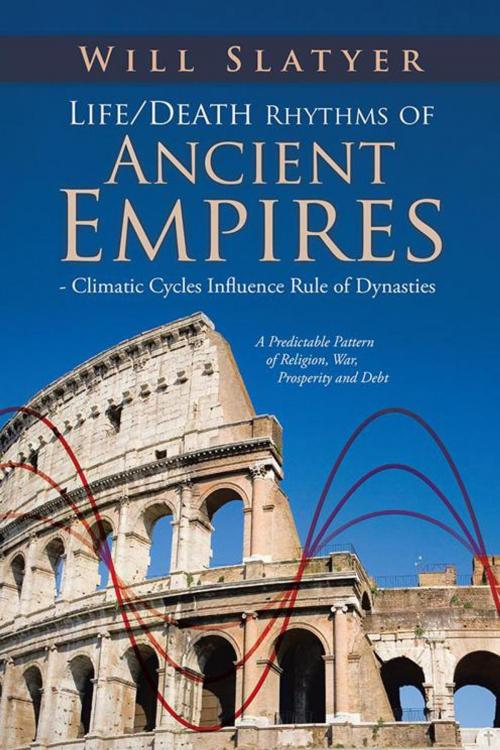Life/Death Rhythms of Ancient Empires - Climatic Cycles Influence Rule of Dynasties
A Predictable Pattern of Religion, War, Prosperity and Debt
Nonfiction, History, Ancient History| Author: | Will Slatyer | ISBN: | 9781482894097 |
| Publisher: | Partridge Publishing Singapore | Publication: | May 22, 2012 |
| Imprint: | Partridge Publishing Singapore | Language: | English |
| Author: | Will Slatyer |
| ISBN: | 9781482894097 |
| Publisher: | Partridge Publishing Singapore |
| Publication: | May 22, 2012 |
| Imprint: | Partridge Publishing Singapore |
| Language: | English |
The Life/Death Rhythms of Ancient Empires outlines the flow of history from 3000BC to 1400AD to identify the factors that make up dominant, just, prosperous civilisations that can be described as golden cultures. These factors were found to have common features and the cultures themselves could be described in cyclical terms. This meant that the rise and fall of future dominant cultures could be roughly forecast to some degree in terms of hundreds of years. The evolution of capitalism was made possible, during and after actual warfare, by ancient priests and bankers, assisted by the invention of coinage. Capitalism was practised in the ancient world, supported at times by warfare and religion. It was vanquished for centuries by powerful weapons called irresponsible debt, and debasement of currency. The global capitalism of the twenty-first century is dependent on debt and a debased US dollar. A review of ancient history provides the basis for a glimpse into the future. This centurys global temperature increase, which so excites environmentalists, can be shown to be part of a thousand year climate cycle. There well might be a human element to global warming but this just exacerbates the centuries long cyclical pattern. Research has shown that periods of hot-dry and cold-dry climate have effects on human behaviour. Extrapolation of cycles enables forecasts of human behaviour to be made well into the new millennium. Dominant prosperous societies have occurred at roughly 200 year intervals which can suggest time-lines for societies in the present and the future A relatively irreverent history of ancient cultures, war, religion, money and debt produces cyclical analysis enabling a forecast that the USA might lose world dominance in 2040. The next volume "Life/Death Rhythms from the Capitalist Renaissance" will include economic data that will allow refined cyclical forecasts.
The Life/Death Rhythms of Ancient Empires outlines the flow of history from 3000BC to 1400AD to identify the factors that make up dominant, just, prosperous civilisations that can be described as golden cultures. These factors were found to have common features and the cultures themselves could be described in cyclical terms. This meant that the rise and fall of future dominant cultures could be roughly forecast to some degree in terms of hundreds of years. The evolution of capitalism was made possible, during and after actual warfare, by ancient priests and bankers, assisted by the invention of coinage. Capitalism was practised in the ancient world, supported at times by warfare and religion. It was vanquished for centuries by powerful weapons called irresponsible debt, and debasement of currency. The global capitalism of the twenty-first century is dependent on debt and a debased US dollar. A review of ancient history provides the basis for a glimpse into the future. This centurys global temperature increase, which so excites environmentalists, can be shown to be part of a thousand year climate cycle. There well might be a human element to global warming but this just exacerbates the centuries long cyclical pattern. Research has shown that periods of hot-dry and cold-dry climate have effects on human behaviour. Extrapolation of cycles enables forecasts of human behaviour to be made well into the new millennium. Dominant prosperous societies have occurred at roughly 200 year intervals which can suggest time-lines for societies in the present and the future A relatively irreverent history of ancient cultures, war, religion, money and debt produces cyclical analysis enabling a forecast that the USA might lose world dominance in 2040. The next volume "Life/Death Rhythms from the Capitalist Renaissance" will include economic data that will allow refined cyclical forecasts.















